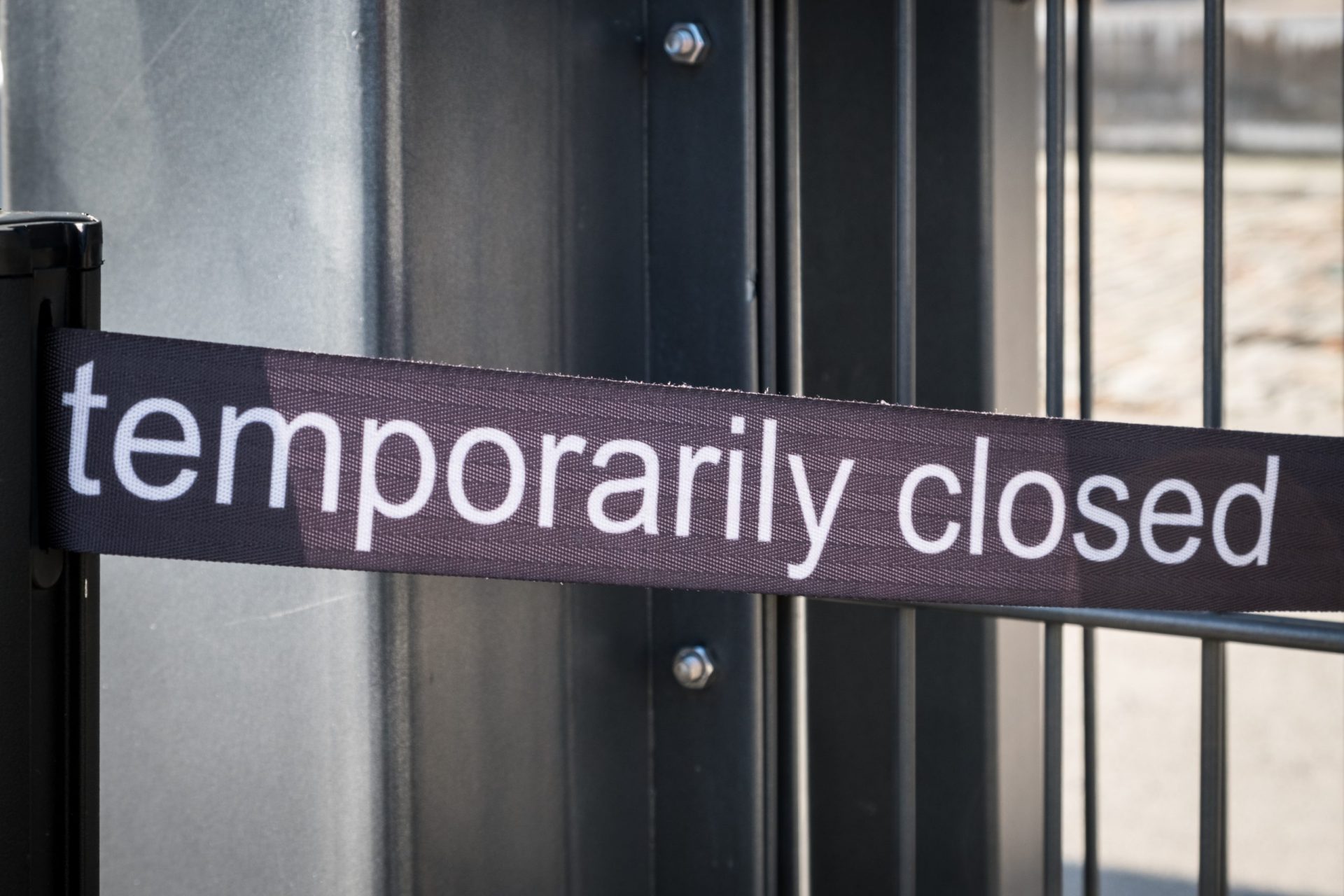As the first week is nearly over following the closure of licensed clubs I’ve decided to start planning on how my business might look when the time comes where the closure sanctions are removed.
Having spent eleven years of my young life as a police officer, I am acutely aware of the impact workplace grief can have on someone, particularly when your community is relying on you. My fear is hospitality managers whom have been either stood down or are taking leave, will allow this grief to compound as a result of not being productive, and before you know it will manifest itself and totally consume you. This will impact your operational readiness when business is back up and running. Trust me, I have plenty of police peers who I have total respect for, who were fierce when it came to policing but later suffered from the black dog.
Most of you would be aware after my policing career I also had a career managing in licensed clubs. These clubs had their own unique challenges, and I found out early a lot of synergy between criminal intelligence when detecting criminals, and business intelligence when detecting inefficiencies and over-efficiencies in business. I built my club management career on analysing business intelligence, which strangely I found was available in spades.
As crazy as it sounds, business intelligence actually excites me. Being able to navigate it has allowed me to not only detect inefficiencies but also successfully prosecute fraud offences on behalf of licensed clubs in circumstances where there is no evidence of the offender taking and carrying away the money, and standing in board rooms to justify why I had made certain decisions concerning the club I was managing in.
In fact, just this week as a result of examining a small community club’s intelligence, I was able to defend them against an allegation they owed money to someone who had commenced proceedings against them.
Whilst I know many of you have already made considerations as to how your club might look when you re-open, I have prepared a list of tasks I would be considering to ensure my club was operationally ready to re-open when the Government permits.
1. Test the efficiencies of your roster up until closing
During my tenure as operations manager at Rooty Hill RSL Club, the club was extremely unionised. The Liquor and Hospitality Union’s senior industrial advocate had been employed by former management as a door person and allowed him to foster union membership and distribute union propaganda to more than 600 employees.
I recall an occasion which depicted to me the influence Rooty Hill RSL Club had on the Liquor and Hospitality Union when we had caught an employee assaulting another employee and we had arranged a meeting with the employee concerned.
At this meeting, the employee was represented by the President, secretary, senior industrial advocate of the Liquor and Hospitality Union, and two union delegates to dispute that the employee who had assaulted another employee had not done anything wrong.
Coincidentally on the same day while this meeting was occurring, Panthers Leagues Club had just made 100 employees redundant and there was no union intervention.
Now I am not anti-union, in fact, I was an active member of the Police Association during my policing career and the Club Managers Association (a trade union) during my club management career, who I have a fond respect for.
However we had an issue at Rooty Hill RSL Club where the clubs catering department was losing in excess of $2,000,000.00 per year, and in order to arrest this loss, we needed to make changes to the workforce. But let’s face it the Liquor and Hospitality Union would have none of that. Take employees shifts away when they were prepared to vigorously defend an employee who was caught on closed-circuit television assaulting another employee. We needed to build a comprehensive prosecution for such a matter.
It was at this time I detected the value of point of sale systems when it came to detecting workloads. Because the modern point of sale systems, in addition to revenue, also appeared to record customer counts at either 15-minute, 30-minute or hourly intervals.
When I commenced mapping these customer counts with club rosters I found how quickly you could detect inefficiencies in labour, but also circumstances where service may have been compromised due to inadequate rostered hours at different periods of trade. Both of these scenarios pose risk to your business, which could be easily translated by undertaking such analysis.
It is my recommendation operation managers, human resource managers and food and beverage managers during this lockdown consider looking at the available intelligence from your point of sale systems, and map it with your existing rosters and attempt to detect inefficiencies or over efficiencies to enable you to draft a more intelligence-based roster.
You will certainly need efficiencies to ensure you recover as quickly as possible from the lockdown.
2. Look at existing pouring agreements and buying arrangements
Given the duration of pouring agreements and the complex methods of how rebates and promotional funds are calculated, now presents an excellent opportunity for a thorough reconciliation to occur.
This will be all the more important when looking to attract and retain your members and customers once again.
Prepare promotional plans, consistent with your own communities dynamic and don’t be fooled into releasing promotional funding to brand awareness opportunities for your suppliers only, doing very little for loyalty and customer retention.
Be calculated, and make sure your products are relevant for post-Covid-19.
3. Remove all duplication in your business
Between 2011 and 2013, I part-time consulted to Northmead Bowling Recreation and Sporting Club in the absence of a general manager due to diminishing profits and poor cash flow.
This was a club who despite its location and proximity to Parramatta, had a huge reliance on a core group of members, and I knew early I needed to operate on a mandate which retained existing member services and if anything, increase these services to avoid any risk of further diminishing profits.
Therefore in order to uphold this mandate, we needed to look back-of-house to detect the efficiencies we could explore.
At the time there was a fulltime office manager, who was supported by a fulltime administration employee, who were struggling to prepare accounts, prepare payroll and manage membership.
Subsequently, they had been working overtime, accruing days off in lieu and the administration payroll was higher than the whole front of house payroll.
Duplication looked like this:
- Daily banking entered into a spreadsheet;
- Department spreadsheet created from daily banking spreadsheet;
- Daily banking entered into accounting software.
After:
- Daily banking entered into accounting software only.
Duplication looked like this:
- Microsoft word document prepared for rostering;
- Employees used bundy cards to punch on for rostered shift and punch off;
- Administration collected bundy cards and reconciled bundy cards with roster;
- Administration entered hours in the payroll system from bundy cards;
- Prepare individual EFT payments for each employee.
After:
- Introduced a cloud-based rostering system automatically populating rosters week to week, and integrated bundying system;
- Bundying and roster variances automatically detected;
- Exporting time in attendance record from a cloud-based rostering and uploading to payroll software;
- Download .aba file and automatically upload to banking software for payment.
Other considerations:
- Batch payment exports from the accounting system and subsequent automation with the banking system to avoid multiple preparations of EFT payments.
- Third-party invoicing software which allows scanning of invoices for automatic integration with your accounts system. Programs like Receipt Bank, which allows rules to be created for invoices to ensure it hits the right account in your chart of accounts and also maintains an electronic copy of the invoice for ATO archiving requirements.
- Intelligence reporting software which integrates with your accounting system such as Spotlight Reporting, Fathom etc. Allows the creation of certain datasets to allow automation for business intelligence reporting such as cash flow, gross profit, departmental revenue fluctuations etc.
Remember reducing duplication in back of house areas supports the ability to introduce more front of house activities, the ones which influence a customer’s behaviour.
4. Stop excusing catering as a loss-leader to camouflage inefficiencies
Look into doing the following:
- Calculate current gross profit margins on each menu item.
- Prepare recipe cards to ensure service consistency and efficient preparation of each menu item.
- Review stocktake and measure against revenue.
- Reconcile existing labour versus covers served to ensure efficient rostering.
- Research existing supply chains and investigate opportunities for greater buying power and product quality.
5. Modernise your marketing plan
Now has never been a greater opportunity for you to catch up with the rapid changes and current marketing opportunities which exist.
For all of us who are over twenty-five years old, I hate to tell you but the social networking dynamic is completely changing with the introduction of platforms such as Tik Tok.
Many of us laughed when there was a shift from Facebook to Instagram and the introduction of Snapchat etc. however, what I believe has been seriously underestimated is these platforms are huge, their reach is extraordinary, the platforms are F-R-E-E, and on a scale, there is no cheaper method to advertise when it comes to reach. I repeat nothing scales like social media when it comes to reach.
Great marketing managers during this period could do far worse than consume content, content and more content.
Follow guys like:
- Gary Vaynerchuk (Gary Vee) This guy gives away all his content for free. He is the master.
- Grant Cardone – A real estate investor, however, his business content is incredible.
- Kerwin Rae – An Australian advertising entrepreneur who is crushing it worldwide.
6. Launch at least one new product before re-opening
Something I have acknowledged is my own business is dependent on how long the closure sanctions will be. Will customers get used to life without you?
There is a distinct difference with saying the words, “We’ll be back bigger and better than ever”, and actually coming back bigger and better than ever.
Expect to be punished if you believe coming back bigger and better than ever means nothing more than re-opening the doors.
Now is a prime time to be creative. Look at the popularity of products which will be an unfortunate casualty of this crisis due to an absence of liquidity to support themselves through the closure of non-essential services.
I am sure there will at least be one popular community institution in your areas that were a popular part of the fabric of that community. Look at how you may be able to assist to restore this and be kind to the small businesses who paved the way to allow you to do that.
If not be creative, but in my opinion, it will be fatal if you treat your club as business as usual.
7. Keep the mind fit
As devastating as these current circumstances are I like to think I am mentally conditioned to respond to the challenges of not being able to trade.
Whilst most of this is built on a platform of gratitude of where I am at this moment, you should know that hasn’t always been the case and I have had my fair share of curveballs in the past.
On my second last day in the NSW Police in 2000, I was at St Mary Leagues Club collecting a uniform as in less than one week, my career would change from being a serving member of the NSW Police Force to become the security and compliance manager at St Mary’s Leagues.
At the time I was the most senior detective working that day at Quakers Hill Police Station when my partner and I received a call that two young children four-years-old and two-years-old had gone missing in Riverstone.
We left St Mary’s Leagues Club and arrived at the scene a short time later and I noticed the uniform guys searching a creek area. The two-year-old girl had been located at this point.
As the uniform guys were commencing to leave the vicinity of the creek I saw something and said to the children’s mother “What was your son wearing?”, and while the uniformed guys and ambulance tried their best, the rest is history.
I was then responsible to escort the family to Hawkesbury Hospital, escort the government contractors to Westmead Hospital, and spend my last day in the NSW Police Force preparing a brief for the Coroner concerning the circumstances of that afternoon.
Now Police have plenty of these stories and none of them diminishes the other. Tragedy was not uncommon an occurrence as a police officer but a career I am immensely proud of and one which I have the fondest of memories.
Secondly in 2007, after losing my father to a brain aneurysm at the age of 56, I was informed I had also had an aneurysm that would require surgery. Given the intrusive nature of such a surgery, there is a mortality rate of which I had to accept to allow the aneurysm to be repaired. I’ll never forget how the club industry supported me during this time especially Wests Illawarra where I was working, and thankfully the repair was successful and pending future scans should not have any further impact on my life.
For these reasons and other unfortunate circumstances, I have developed calluses, like most people who have gone through some type of grief, however one thing is for sure, I won’t be letting the challenges of Covid-19 define me and will be determined to walk the walk when it comes to being back bigger and better than ever.
Some of my current inspiration if relevant for you comes from books I like to read including:
- Can’t Hurt Me by David Goggins
- Ego is the Enemy and Obstacle is the Way by Ryan Holiday
I only want the very best for everyone during this trying time and if you have got some snippet out of my considerations, then that means more to me than anything else.
Stay strong and know that I will always have your back.




